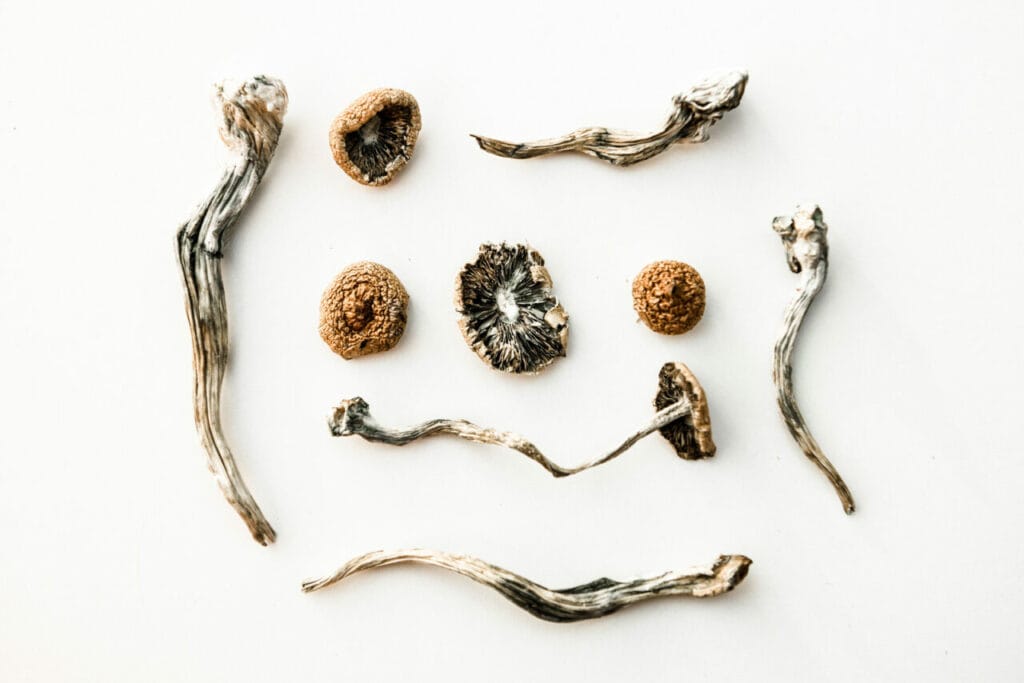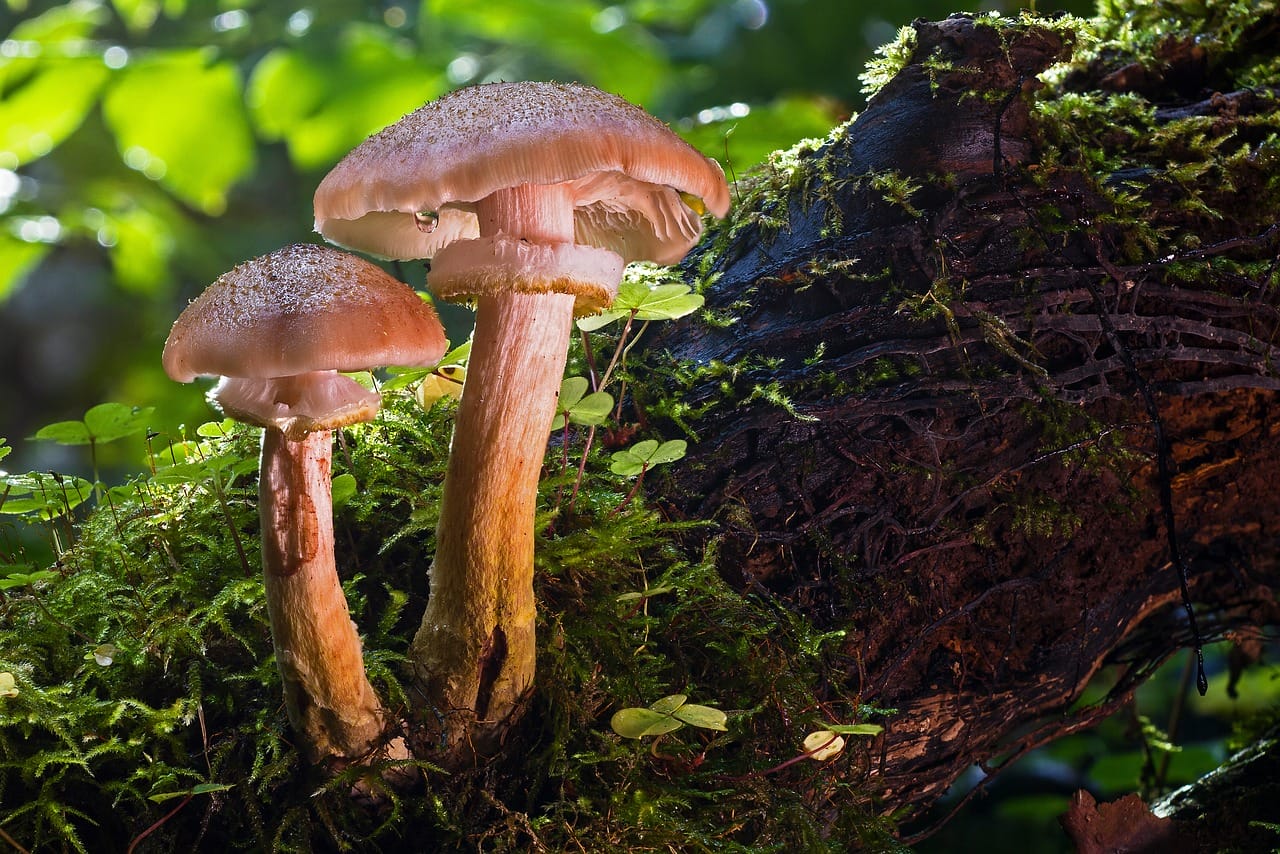While many Canadians initially perceived magic mushrooms as primarily a recreational psychedelic substance, scientific exploration of the active component, psilocybin, has revealed its strong effectiveness in treating various mental health conditions.
As increasing amounts of data surface, our comprehension of the uses of psilocybin continues to evolve. This growing knowledge makes it easier for individuals to access these products through magic mushroom delivery services. A recent study underscores its influence on human consciousness, potentially shedding light on its profound impact on the human brain. Let’s embark on an exciting journey into the world of magic mushroom products.
Key Points:
- Psychedelic magic mushrooms have shaped the cognitive functions of early humans, contributing to their survival.
- Mushrooms play a substantial role in neurological health due to their potential to ease PTSD, depression, and anxiety.
- The influence of psilocybin on consciousness and brain activity could heighten creativity, self-reflection and abstract reasoning.

Historical Use and Importance of Magic Mushrooms
Historical accounts indicate our ancestors have been utilizing the power of psychedelic magic mushrooms since ancient times. Indigenous societies employed them in sacred rituals and conventional ceremonies to honor their gods. These mushrooms flourish worldwide, especially in subtropical and tropical areas, including South and Central America, the Caribbean, Southeast Asia, and Africa.
The Function of Shrooms in Ancient Civilizations
Indigenous groups in Mexico have relied on these fungi for spiritual enlightenment, divine interaction, and religious ceremonies since ancient times. The Aztec Indians of South America referred to it as “God’s Flesh” and incorporated it into healing rituals.
Evidence suggests historical usage dating back to:
- Approximately 10,000 years ago in Australia
- Close to 7,000 years ago in North Africa
- Round about 6,000 years ago in Spain.
Some academics present these results as evidence of the widespread historical consumption of psilocybin. Upon ingesting mushrooms, individuals enter a euphoric state, experiencing hallucinations filled with complex geometric and visual designs.
The Significance of Mushrooms in Spain’s Bronze Age Narrative
In the mid-1990s, researchers discovered remnants, especially strands of hair from approximately 200 Bronze Age communities, hidden within a cave in Minorca, Spain. The artifacts were astonishingly well-preserved, due to the cave entrance being sealed off by fallen debris. Examination revealed that these hair samples contained traces of three alkaloids, compounds known to affect the human mind and provoke altered states of consciousness.
These discoveries provide compelling insights into the reasons and methods ancient societies used these substances. Surprisingly, reaching an altered state was a regular occurrence in those periods. However, the question of how these substances affected human evolution remains unanswered.
Psilocybin and the “Big Bang Theory” of Human Consciousness Evolution
In recent years, there has been a revival in psychedelic research, reinforcing the proposal that psychedelics contributed to the evolution of consciousness. This idea, referred to as the stoned ape theory, was proposed by ethnobotanist Terence McKenna. The theory posits that the use of psychedelics may have shaped the cognitive and cultural evolution of humans.
According to Dr. Thomas Falk, a professor of Philosophy and Education at the University of Dayton, this theory could potentially account for the so-called “creative explosion” that took place among Homo sapiens around 40,000 years ago, signifying a crucial progress in early human cognitive abilities.
It is posited that psychedelics permitted early humans to dwell in self-created worlds. As their cognitive abilities developed over time, they were able to replicate these experiences in their tangible environment.
Terence McKenna’s “Food of the Gods” offers his arguments that the stoned ape hypothesis is grounded in ancient shamanistic traditions and a hypothesized range of plants and fungi.
“Potential to Trigger Neurological and Psychological Transformations”
Psychoactive substances possess the potential to instigate significant neurological and psychological changes. These shifts could have played a crucial role in the development of our species.
By combining several disciplines like biology, ethnobotany, and neuroscience, the study examines existing research on psilocybin and its influence on human consciousness. The theory proposes that as early humans began to encounter these fungi more frequently due to their environment shifting from forests to grasslands and increased exposure to animal dung, they consumed more. The study references the “stoned ape” hypothesis, which implies that this change in diet might have triggered significant brain transformations in early hominids.
Effects of Consuming Psychoactive Substances
The possible ramifications of consuming these fungi could be diverse, including enhanced hunting and scavenging skills, heightened sexual desire, and increased sensory awareness. Coupled with the effects of psilocybin on consciousness and brain function, these factors might have fostered creativity, self-reflection, and abstract thinking, all key elements in the development of language.
The Peruvian scientists who led the study emphasize the need for additional research into how these substances affect the brain and human evolution. While it has impacted brain areas related to memory, decision-making, and self-awareness, its evolutionary effects remain under active investigation.
An independent genetic study indicates that magic mushrooms likely emerged around 67 million years ago. Humans have been consuming these fungi for millions of years, predating even the use of marijuana.
What Do Dried Magic Mushrooms Comprise Of?
They contain a hallucinogenic compound called psilocybin. The effects can differ based on individual tolerance, body weight, and method of consumption. Here are some potential effects:
- Extreme joy
- Feeling of tranquility
- Spiritual awakening and introspection
- A dreamy state of feeling disconnected from physical surroundings
- Changed visual perceptions, like seeing light auras and vibrant colors
- Enhanced feeling of well-being
Despite being used recreationally, many people use it medicinally for its beneficial effects on brain health.
Effects on Neurological Health
The main compound alters mood, cognition, and perception by interacting with serotonin receptors present in the prefrontal cortex. The heightened cognitive skills, including the ability to manipulate visual and auditory experiences, enhance one’s task performance.
Connection to the Past
Our early ancestors, often referred to as stoned apes, also applied this principle. Their discovery and use of these fungi, particularly during their ecological transition from forests to grassland habitats, resulted in increased exposure to animal feces. This, in turn, amplified their consumption of these mushrooms. The “stoned ape” hypothesis, as mentioned in the study, suggests that this change in diet could have instigated significant alterations in the brain structures of early hominids.
The intake of psilocybin mushrooms may have influenced the evolution of their consciousness and cognitive skills. This might provide an explanation for how they developed crucial survival skills.Present and Future Interactions
Recent research indicates that individuals afflicted with conditions such as cluster headaches, anxiety, anorexia, obsessive-compulsive disorder, PTSD, and depression typically exhibit low serotonin levels. While selective serotonin reuptake inhibitors (SSRIs) are the standard treatment, they often require a substantial amount of time to show progress. In contrast, shrooms can prompt immediate alterations in brain neuron connectivity.
Modern Psychedelic Research – Clinical Trials
Scientists have been exploring innovative, personalized treatments for various psychiatric and behavioural disorders since the early 2000s.
Its ability to permeate the central nervous system and enhance cognitive function has proven effective in therapy. Research progress in 2020 indicates that psychedelic therapy using psilocybin products helps to relieve severe depression.
Matthew Johnson, a professor at Johns Hopkins Medicine, states that these substances alter the way different brain systems communicate. An increased connectivity between brain regions that typically don’t communicate effectively is evident. Meanwhile, areas that usually interact significantly show reduced communication.
This induced disorganization is not merely a side effect but holds potential therapeutic benefits. Individuals suffering from depression often find themselves trapped in self-deprecating, repetitive thought cycles, which worsen their condition. Psychedelics disrupt these patterns, enabling individuals to escape from their entrenched negativity during a psychedelic experience. This leads to more flexible thinking and improved critical
Acquire Magic Mushrooms Online: Your Gateway to Wellness
An extensive assortment of these controlled substances is obtainable online. Choose from a variety that is safe and verified by laboratories, mitigating the danger of unintentionally buying harmful mushrooms. Reliable vendors ensure the quality and safety of the products they offer.
| Product | Psilocybin Content | Psilocin Content | Benefits |
| Enigma | 0.76% | 0.07% | Boosts Focus, Provides Uplifting Effects |
| Atlantic Treasure Coast | 0.59% | 0.08% | Improves Concentration, Stimulates Creativity, Fosters Neuroplasticity |
| Blue Magnolia | 0.58% | 0.08% | Better Memory, Assists in Battling Depression and Anxiety |
| Cambodian | 0.45% | 0.06% | Helpful in Treating PTSD and Anxiety, Supports Substance Abuse Recovery, Elevates Mood |
Revealing the Concealed Potential of Magic Mushrooms
All current progressions, including civilizations, urbanizations, and societies, stem from various advancements. Although the stoned-ape hypothesis might merely be a theoretical dialogue, scientific researchers are increasingly discovering evidence supporting the notion of psilocybin contributing significantly to human evolution.
If you’re in pursuit of accelerated cognitive growth, Schedule35 Canada’s magic mushroom delivery is your ultimate destination. We supply a broad variety of top-tier shrooms from A to Z, with quick delivery options available in British Columbia and beyond.
Discover the future of personal growth — peruse our selection of superior psychedelics online Canada today.
Commonly Asked Questions
What variety of shrooms did ancient civilizations consume?
Diverse kinds of fungi exist worldwide, so there isn’t a single kind consumed by all communities. Some favored the well-known liberty caps, while others preferred Psilocybe cubensis. Majority consumed these mushrooms raw or prepared edible forms like tea blends.
What is the role of psychedelics in modern human development?
In the contemporary world, psychedelics mainly function by targeting the 5-HT2A receptor subtype. This interaction has proven beneficial in dealing with stress-related conditions, significantly fostering creativity and social interaction. These effects could enhance adaptability and survival, especially in societies that strongly rely on knowledge sharing and social interconnection.
How have spiritual practices with shrooms influenced human evolution?
Indeed, it has been found that spiritual rituals involving shrooms have been instrumental in human evolution by shaping cultural, religious, and social frameworks. They foster a deep sense of unity, creativity, and communal cohesion.
Suggested Reads:





